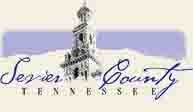Sevierville Attorneys Explain Tennessee Seatbelt Usage Laws
Guiding clients in Sevierville, Gatlinburg, and Pigeon Forge through the Tennessee seatbelt laws
Seatbelts save lives. According to the Centers for Disease Control, in 2012 more than 2 million people were treated in emergency rooms for auto accident injuries. About half of car accident injuries and fatalities could have been avoided if the victim wore a seatbelt. Teenagers are especially negligent about using a seatbelt, as are adults who live in rural areas. People in the rear seats wear seat belts less than front seat occupants.
The Sevierville auto accident attorneys at Delius & McKenzie, PLLC understand the Tennessee laws that mandate seatbelt use. We work to hold drivers and manufacturers who fail to protect auto passengers accountable for their actions. The firm has been helping auto accident victims in Seymour, Sevierville, Pigeon Forge, and Gatlinburg for more 20 years get the recoveries they deserve, including damages for medical bills, lost income, and pain and suffering. We also bring wrongful death claims on behalf of family members, including parents of children, who are killed because of a failure to wear a seatbelt.
Tennessee laws on seatbelt usage
Children are especially prone to suffer harm if an auto accident occurs. Without a seatbelt, the child can fly around the car, suffering severe injuries or even death. To protect children, Tennessee has the following requirements for drivers and owners of automobiles:
- Children up to a year old or who weigh less than 20 pounds must be placed in an approved rear-facing child passenger protection structure in the back seat, and must be secured in that system.
- Children between one year and three years old, and children over 20 pounds, should be secured in a front-facing or a rear-facing child passenger protection device in the rear of the vehicle.
- Children between four and eight years old, and shorter than 4’9” in height, must be secured in an approved belt-positioning booster seat device in the backseat.
- Adults and children over eight and over 4’9” inches should use lap and shoulder belts if the car has both devices.
Child safety systems must comply with Federal Motor Vehicle Safety Standards (FMVSS). Some exceptions may apply. Children who are not properly secured can slide under the seatbelts and suffer harm or fall through shoulder restraints and suffer serious injuries. Injuries due to a failure to use seatbelts and booster devices include traumatic brain injuries, spinal cord injuries, broken bones, and other serious health complications. Young children are especially susceptible to head injuries because their heads are large for their bodies.
Approved devices and size recommendations can found on the National Highway Traffic Safety Administration (NHTSA) website.
Drivers can be ticketed if any passenger fails to have the required seatbelt or safety system device. Generally, the failure to protect a child with a seatbelt or booster seat, or to make sure older children and adults are wearing a seatbelt, is not, by itself, admissible in court in a civil lawsuit.
One exception is in product liability cases. If the seatbelt or booster seat failed to work, then our Sevierville seatbelt usage lawyers seek to hold the manufacturers and sellers of the faulty seatbelt or booster system responsible for any injuries or deaths that occur.
Speak with a reliable Sevierville seatbelt usage auto accident lawyer now
The Sevierville seatbelt use lawyers at Delius & McKenzie, PLLC are ready to help parents and adults get compensation for injuries caused by another in a car accident. We investigate why the accident happened and what should have been done to prevent it. Call us at 865-428-8780 or complete our contact form to schedule a no-obligation appointment. We represent injury victims and families from Gatlinburg, Pigeon Forge, Sevierville, Seymour, and surrounding areas in Tennessee.




